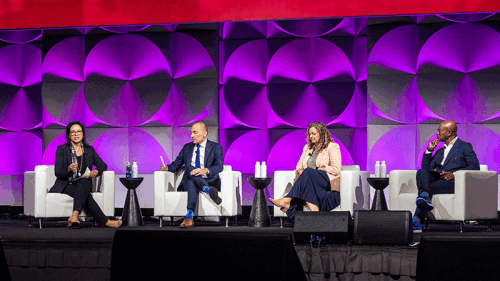Despite the turmoil in places like Ukraine and Syria and the general unease in the United States and other countries, Fareed Zakaria in his closing remarks at the ULI Spring Meeting in Vancouver, British Columbia, focused on the peace and prosperity of the current decade compared with the recent past. While he worries about military conflict between Russia and Ukraine or China and Japan, he is less worried about the deadlock in Washington, the potential collapse of the Eurozone, or economic stagnation in China.
“We [in America] are still uneasy with the way of the world,” said Zakaria, host of CNN’s flagship foreign affairs show, editor-at-large of Time magazine, and Washington Post columnist. “You see it in the polls; you see it in the consumer confidence numbers.”
Zakaria said he is convinced that Germany will never let the euro fail, and that while China’s economic growth has slowed, it will continue to rise from a much larger base, just as has been the case in Japan, Taiwan, and South Korea. He also is not worried about China’s economy overheating because the one-child policy is hindering its demographics, while corruption and pollution are also pervasive.
Zakaria downplayed the political deadlock in Washington. “Washington is often quite irrelevant,” he said. “Look at what the mayors are doing in New York City, Nashville, Denver, and Oklahoma City. . . . The quality of government in cities is better than it has ever been.” Zakaria noted that Los Angeles Mayor Eric Garcetti is using data to make decisions that will reduce traffic congestion and pollution.
He also noted that Canada should be proud of its progressive immigration policy and financial regulations, and the fact it is not handicapped like the United States by ideological polarization.
Some people forget that 18 civil wars were being fought across the globe in the 1970s and 1980s, and 35 countries were experiencing double-digit inflation, he noted. As part of the Cold War struggle between the Soviet Union and Western nations, millions of people died in the wars in the Middle East, Southeast Asia, South America, and Africa. In contrast, approximately 500 million people have since been lifted out of poverty just in China and India, he said.
Zakaria also noted the impact of technological advances on the world. As recently as 1990, the Saudi government was able to keep secret from its citizens that Iraq had invaded neighboring Kuwait, he said. Information technology, including satellite TV networks, the internet, and social media, would make it very hard to keep that kind of secret for more than a few minutes in even the most repressive of today’s regimes.
While the United States and other democratic nations face many challenges in the coming years as they compete in the increasingly global economy, Zakaria sees no reason they will not continue to innovate and thrive. “We do have to run fast,” he said, “but we don’t have to run scared.”



